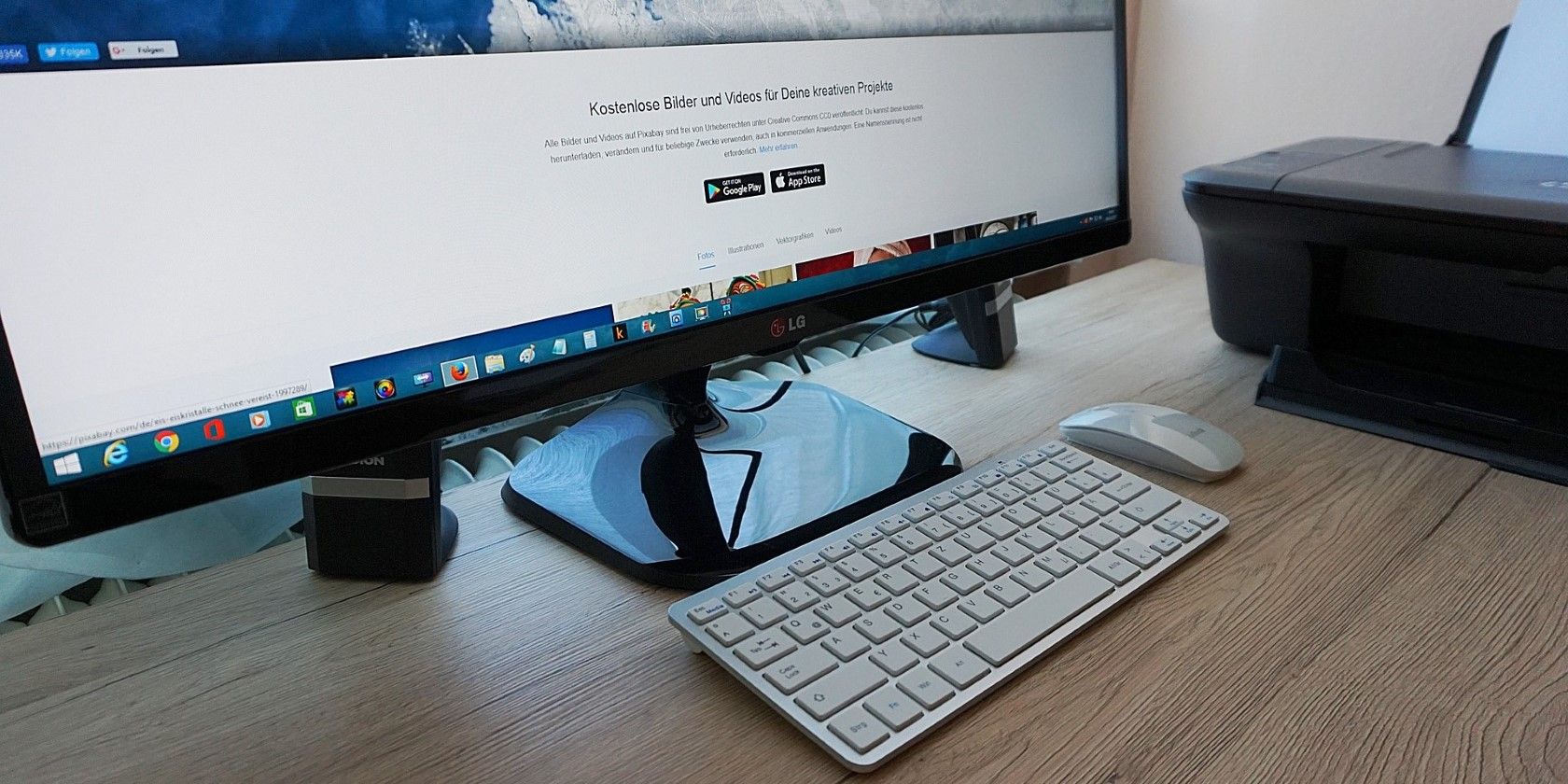
Understanding Foldable Laptops: Pros & Cons of Investing in a Portable Future

Understanding Foldable Laptops: Pros & Cons of Investing in a Portable Future
Key Takeaways
- Foldable laptops are simply laptops with flexible screens, similar to foldable phones but larger.
- Currently, foldable laptops are not worth their high price tags and perform poorly compared to regular laptops, still having technological challenges to overcome.
- While foldable laptops may become more affordable in the future, they are not likely to replace regular laptops.
After reading the headline, you may have thought, “don’t all laptops fold?” That’s true, but the devices known as “foldable laptops” have flexible, bendy screens. They’re akin to foldable phones but in a larger format.
It’s a relatively new electronic category: the first foldable laptop was the ThinkPad X1 Fold , which hit the stores in late 2020. It remained the sole member of its kind until late 2022, and just a few other models have been announced since. Here’s what you need to know if you’re curious about laptops with foldable screens, and considering whether you should get one as your next computer.
What Is a Foldable Laptop?
The concept of a foldable laptop is just that: a laptop with a foldable screen. Reaching that form factor involves complex engineering challenges, but the definition is as simple as it gets.
Phones with flexible screens are of two types: those that unfold into small tablets, like the OnePlus Open , and those that resemble the clamshells of old, like the Motorola Razr . While still a niche, both categories are getting increasingly popular: market research firm Counterpoint claims that, by 2027, 100 million foldable phones will be sold annually—that’s 5% of the category’s market share.
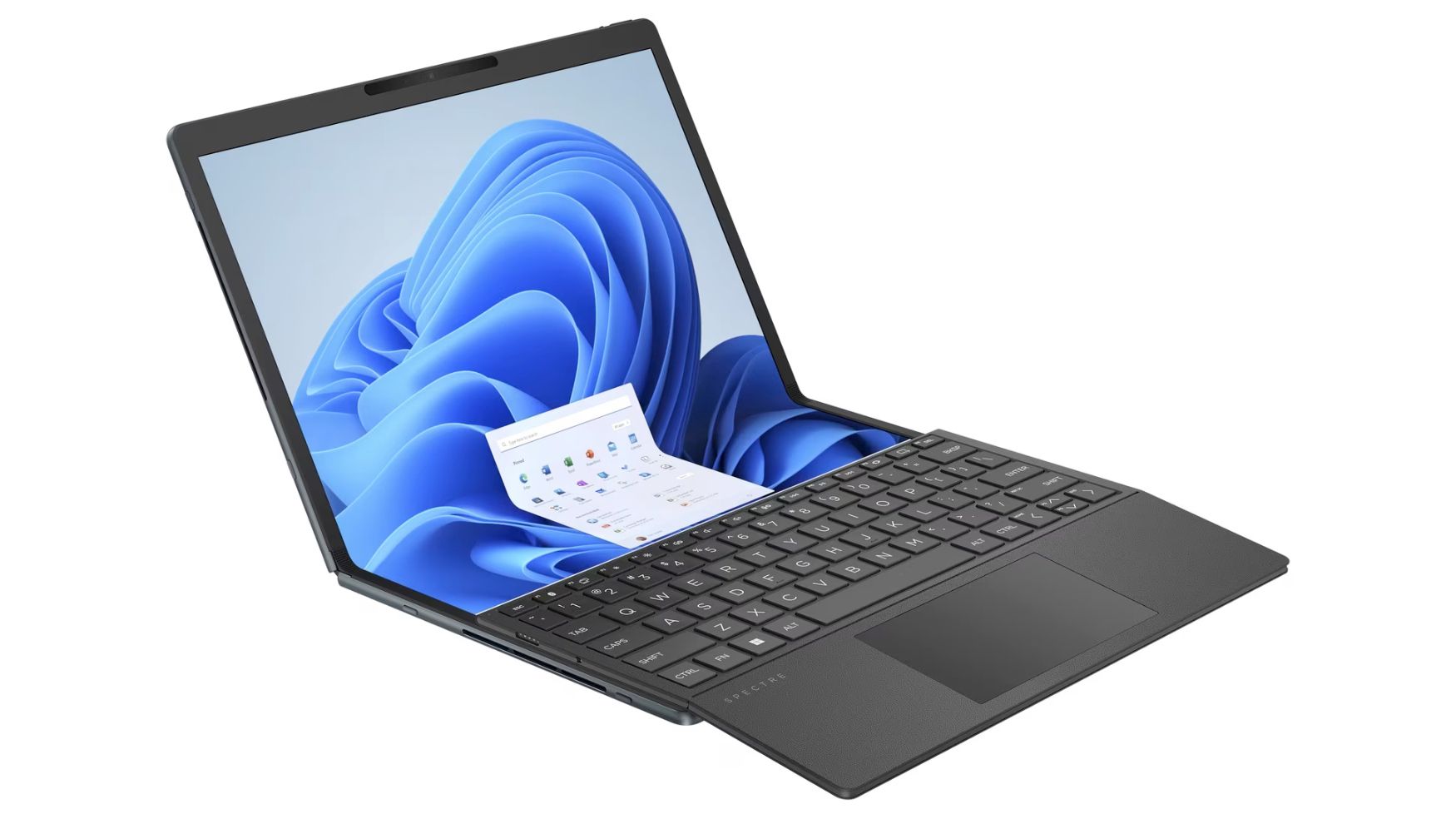
Image credit: HP UK
Image credit: HP UK
Foldable laptops are mostly the same idea, but applied to larger screens. Whether or not they have the potential to stand out from regular laptops as much as foldable phones stand out from glass slabs is yet to be seen.
Are Foldable Laptops Good?
To be fair, foldable laptops are not terrible. But, as of October 2023, they’re definitely not good enough for their price tags. Earlier this year, I spent a few weeks using the Asus Zenbook 17 Fold OLED . While mostly not an unpleasant experience, the device is still far from justifying the $3,499 Asus charges for it.
Lenovo’s ThinkPad X1 Fold 16 is the least expensive foldable laptop around. Yet it retails for $2,500 (but requires another $250 for a keyboard + stylus combo). The most expensive one, HP’s Spectre Foldable 17 , costs a whopping $4,999!
For that money, you can get an almost maxed-out 16” MacBook Pro, or a Razer Blade 18. Their screens don’t fold, but they wipe the floor with any foldable laptop’s specs. Their specs aren’t bad on paper, but, to take things into context, the Zenbook 17 Fold OLED was barely able to endure my work tasks.
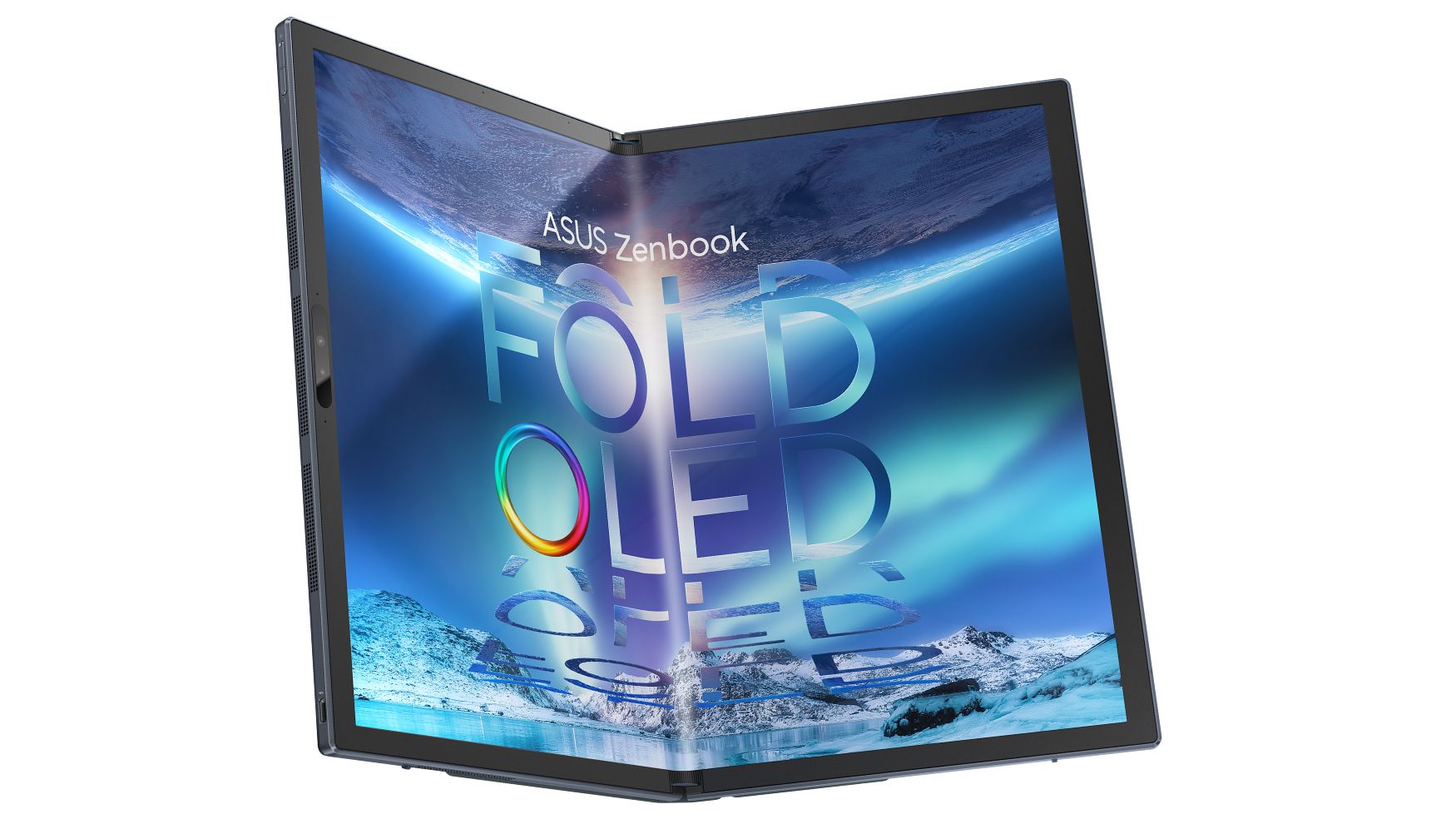
Image credit: ASUS
Image credit: ASUS
That’s because their format limits functionality. Foldable smartphones’ restraints are mostly shared by slabs: no active cooling, internal size limitations, battery capacity, and so on. Making foldable laptops, on the other hand, brings difficulties not present when building regular ones.
Manufacturers need to put a delicate flexible screen above two shell halves that include CPU, RAM and storage chips, and batteries. Active cooling solutions , like fans, have limited capability in such thin devices. Therefore, underpowering is currently the only way to prevent overheating.
Because of that, for now, foldable laptops are expensive and perform poorly even when compared to computers that cost a fifth of their price. That’s for sure not my definition of “good.” It’s not that foldable laptops are a bad idea, their execution just isn’t good enough yet.
Should I Buy a Foldable Laptop?
Definitely no, as of late 2023, when this article is first being written. That is, unless you have a few thousand bucks to spare on a tertiary computer or something like that.
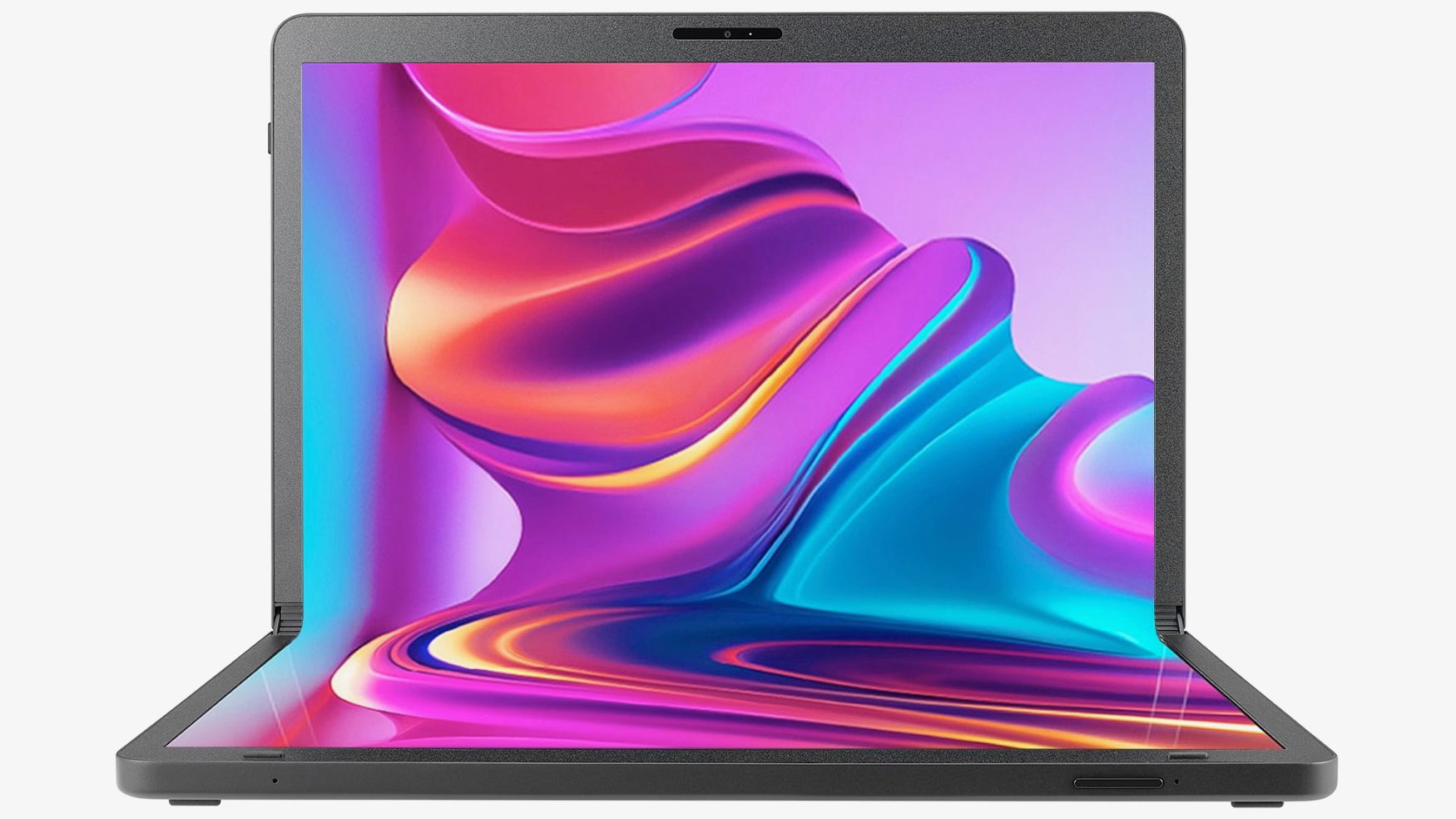
Image Credit: LG Korea
Image Credit: LG Korea
When the first foldable phones were made available, it was clear they were 1st-gen products, requiring lots of polishing before being ready for the mass market. But they were usable enough to make the early adopter pain bearable.
Foldable laptops are even “greener” than that, like concept devices that somehow are reaching the stores. And their price tag is based more on the novelty than anything else. There isn’t much in terms of sleek design, performance or even practicality behind that premium.
The reason is that there are some technological challenges yet to be overcome, so foldable laptops become viable. Advancements like Arm processors for computers are promising steps in that direction, though: they perform well while consuming less power, producing less heat, and allowing for foldable laptops without active cooling.
Will Foldable Laptops Become More Affordable?
Eventually, they will. All electronics do. Consider that the IBM 350, world’s first commercially available HDD , announced in 1956, was leased at $3,200 (over $36,000, adjusted for inflation) per month for 3.75Mb of storage.
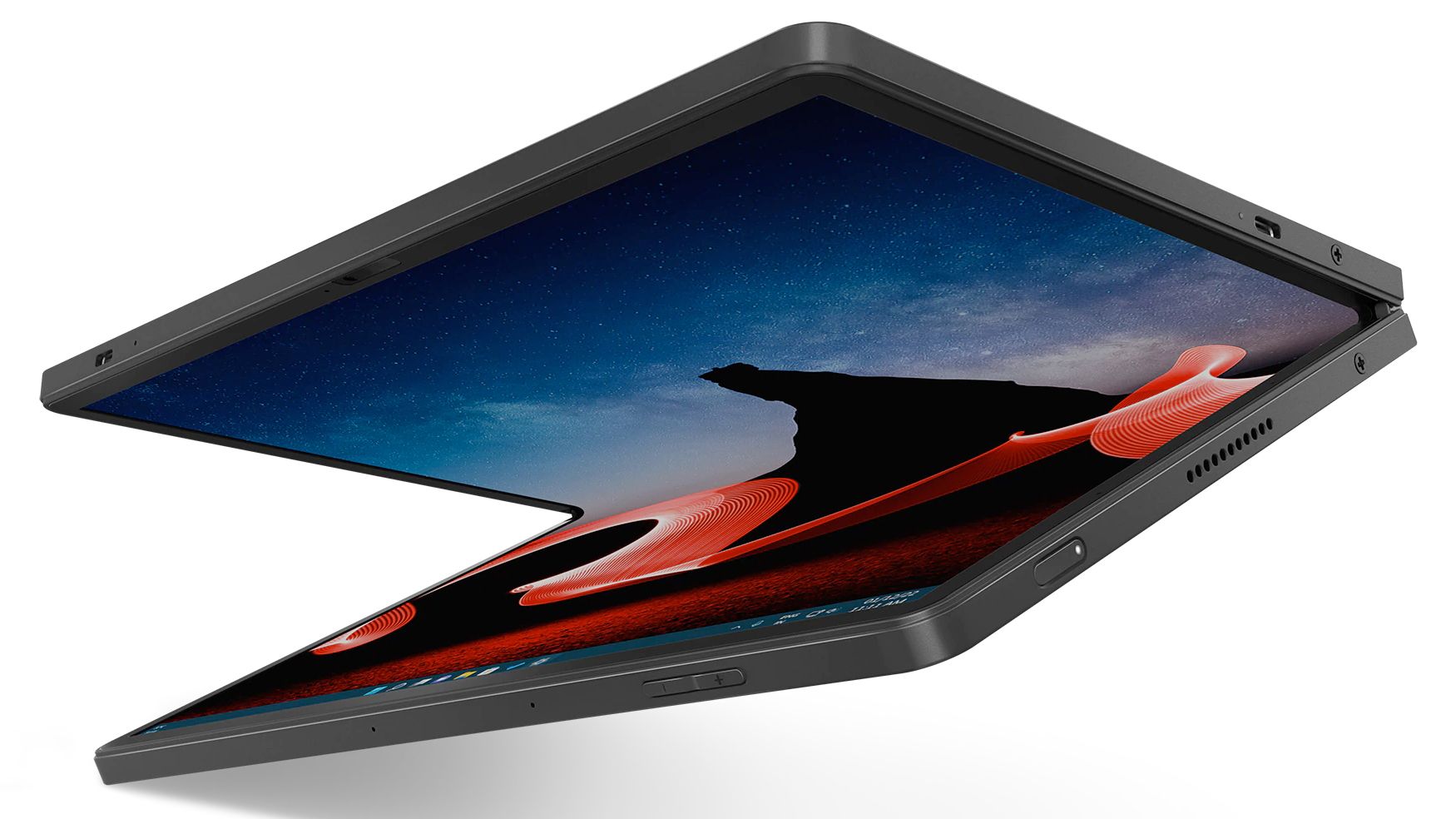
Image credit: Lenovo
Image credit: Lenovo
That’s not to say foldable laptops with reasonable prices will only come 70 years from now. It’s just that technology that seems unthinkable at some point in time often eventually becomes commonplace.
Just look at what’s happening with foldable phones. The original Galaxy Fold cost US$1,980 in 2019 (equivalent to almost $2,400 today). The Z Fold 5 (with 512GB, the first-gen’s single storage option) was announced at $1,920, with four years of advancements built-in. And clamshell foldables can be had for as low as $700 nowadays.
Also like foldable phones, they’re not likely to replace regular laptops anytime soon—even when they get more affordable. For the same reason as phones, too: not everyone wants, needs, or likes a flexible screen.
If you do want, need, or like the idea of a foldable laptop, though, you will have to wait until you’ve saved enough for one, or until their prices drop to a less insane level.
Also read:
- [New] In 2024, Top 10 Budget-Friendly MMORPG Experiences
- [New] The Ultimate Check of DJI Phantom 3
- [Updated] 2024 Approved Enhancing Gaming Experience with Steam Switch Control
- [Updated] Ultimate Tutorial Downloading and Extracting Audio From Vids on Social Platforms
- [Updated] Unified Social Media Platforms Insta-Tik Techniques
- 2024 Approved Insider's Guide How to Buy a Future-Ready 360 Camera
- 2024 Approved Top 13 Easy-to-Master Revenue Strategies on Reddit
- 2024 Approved Transform Your Verbal Input Into Written Content in MS Word
- 2024 Approved Unlocking Full Multitasking in Apple Browsers
- Hassle-Free Ways to Remove FRP Lock on ZTE Nubia Z60 Ultrawith/without a PC
- In 2024, Superior Panzoid Constructs Guide
- Instagram Video Ads Mastery A Guide to Creating Viral Content
- New Bringing Videos to Life in VR Expert Conversion Techniques
- Time-Saving Guide Seconds to Clear Background Bg for 2024
- Transition Trails Your Pathway to macOS 11 Big Sur for 2024
- Troubleshooting Tips for Unfreezing and Recovering Your MacBook Air
- Ultimate Playbook Navigating YouTube Etiquette
- Unlocking Creative Potential Using LUTs for Color Grading in AE for 2024
- Unveiling Clearer Photos A Guide to Picsart's Bg Eraser for 2024
- Title: Understanding Foldable Laptops: Pros & Cons of Investing in a Portable Future
- Author: Daniel
- Created at : 2025-03-04 02:54:18
- Updated at : 2025-03-05 23:09:39
- Link: https://some-skills.techidaily.com/understanding-foldable-laptops-pros-and-cons-of-investing-in-a-portable-future/
- License: This work is licensed under CC BY-NC-SA 4.0.